
City Theatre at Sacramento City CollegeGet Tickets
Donate NowDecision Height Decision Height Program
Information:
From the winner of the 2013 Kennedy Center American College Theatre Festival, comes a story about friendship and the complex though essential role of women in wartime. Virginia Hascall has left her home and fiancee to become a Women Airforce Service Pilot, and do her part to help defeat the Axis powers in the Second World War. Through triumph and tragedy, she and her sisters in flight suits learn as much about themselves as they do about airplanes. As the war rages over there, the women form a sisterhood that cannot be broken, and Virginia must make a decision that will change her life forever. With a cast of nine vibrant female characters, Decision Height offers a look into an underrecognized subset of American heros and revises history into herstory.
Cast:
- Edith "Eddie" Harknell - Mariah Coburn
- Norma Jean Harris - Racine Strong
- Rosalie Hartson - Shannon Poe
- Virginia Hascall - Johnna Wood
- Alice Hawkins - Taylor Elizabeth
- Carol Henderson - Lauren Ormond
- Mrs. Deaton - Sarah Palmero
- Ziggie Lewis - Kathleen Poe
- Mildred Simmons - McKenna Anderson
- Swings - Emmy Harmon & Julianna Camille Hess
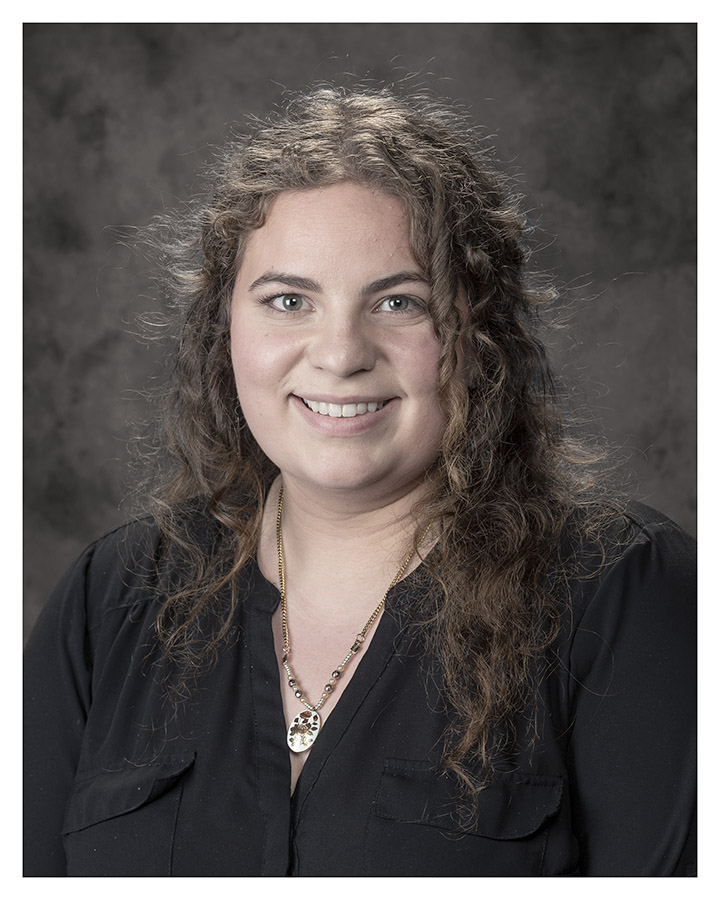 Mariah Coburn as Eddie
Mariah Coburn as Eddie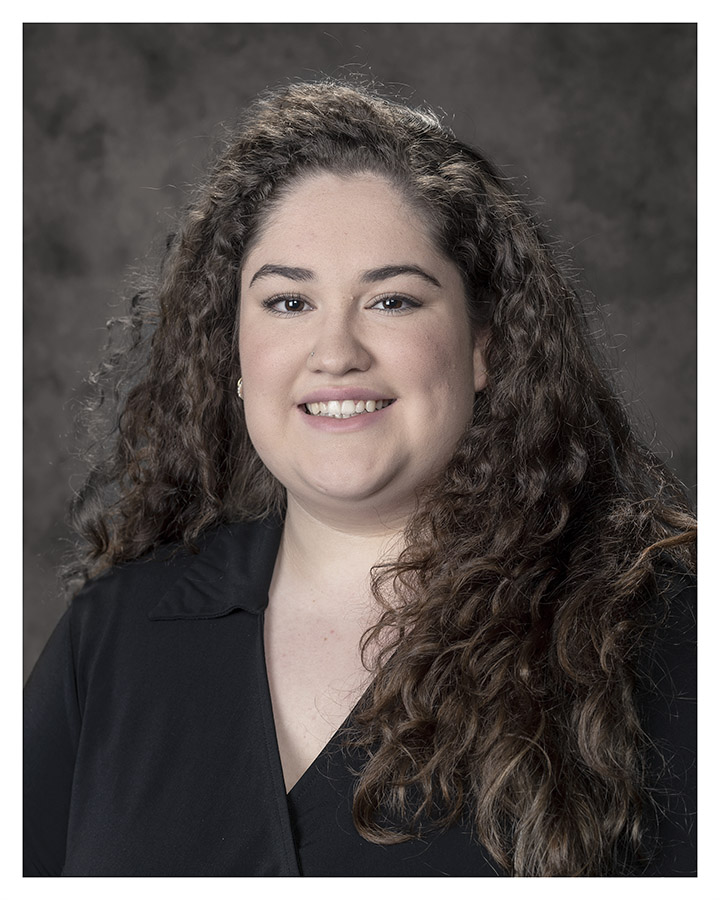 Racine Strong as Norma Jean
Racine Strong as Norma Jean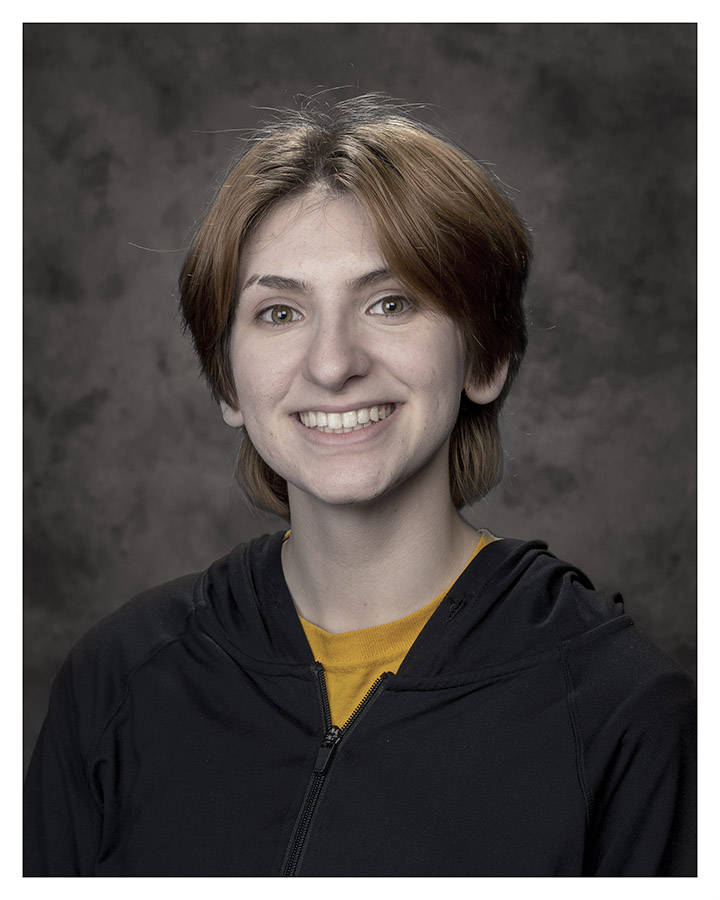 Shannon Poe as Rosalie
Shannon Poe as Rosalie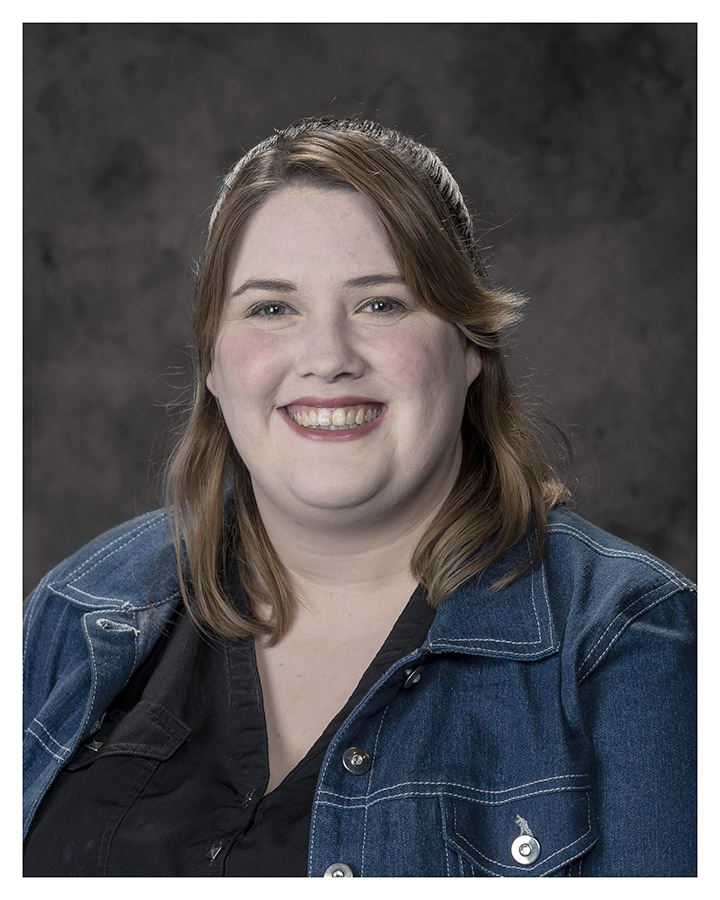 Johnna Wood as Virginia
Johnna Wood as Virginia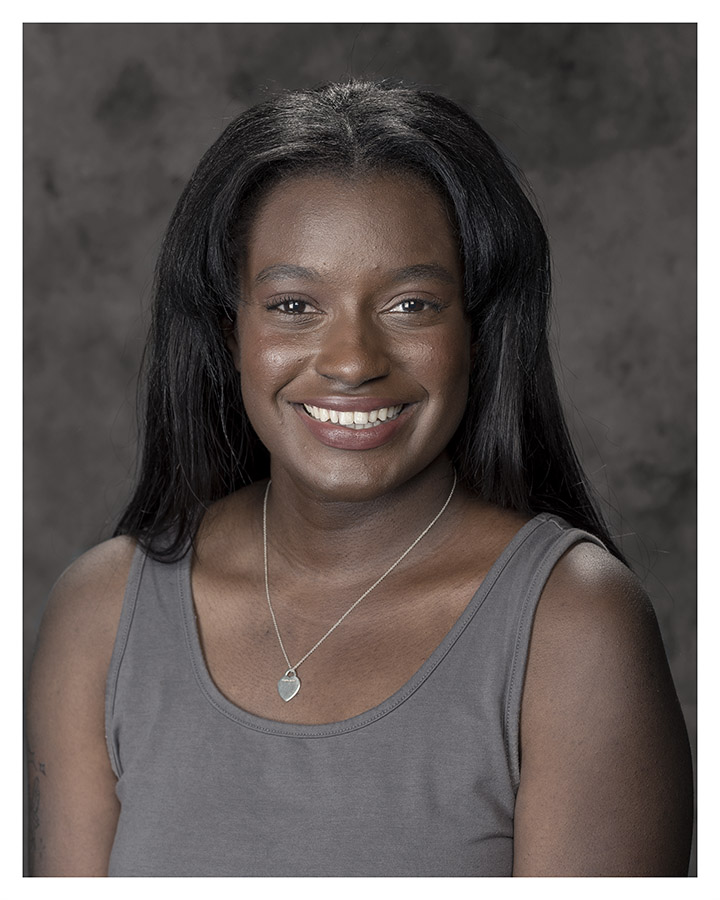 Taylor Elizabeth as Alice
Taylor Elizabeth as Alice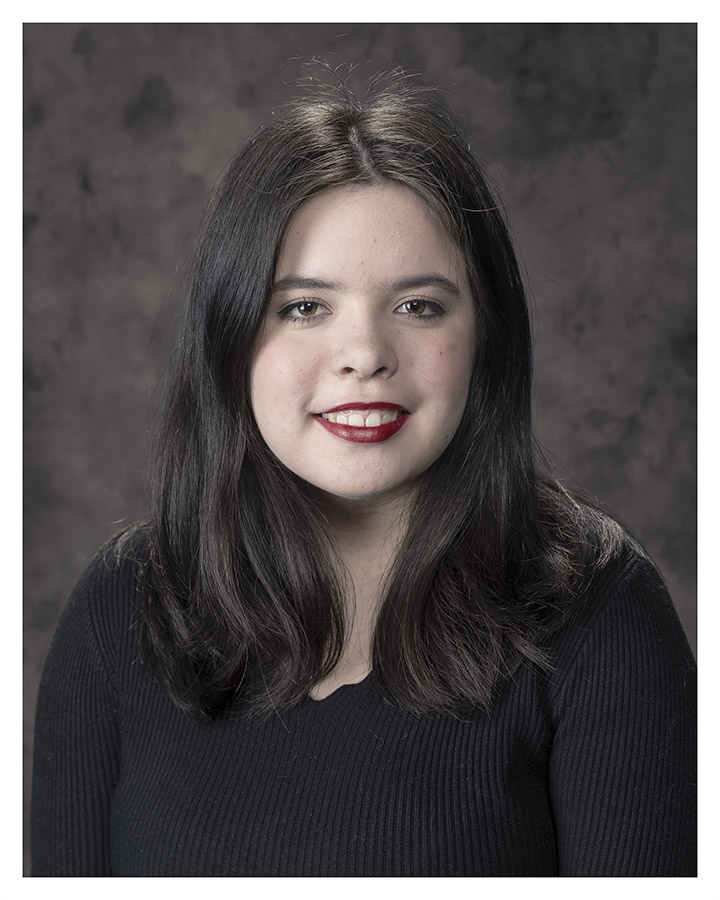 Lauren Ormond as Carol
Lauren Ormond as Carol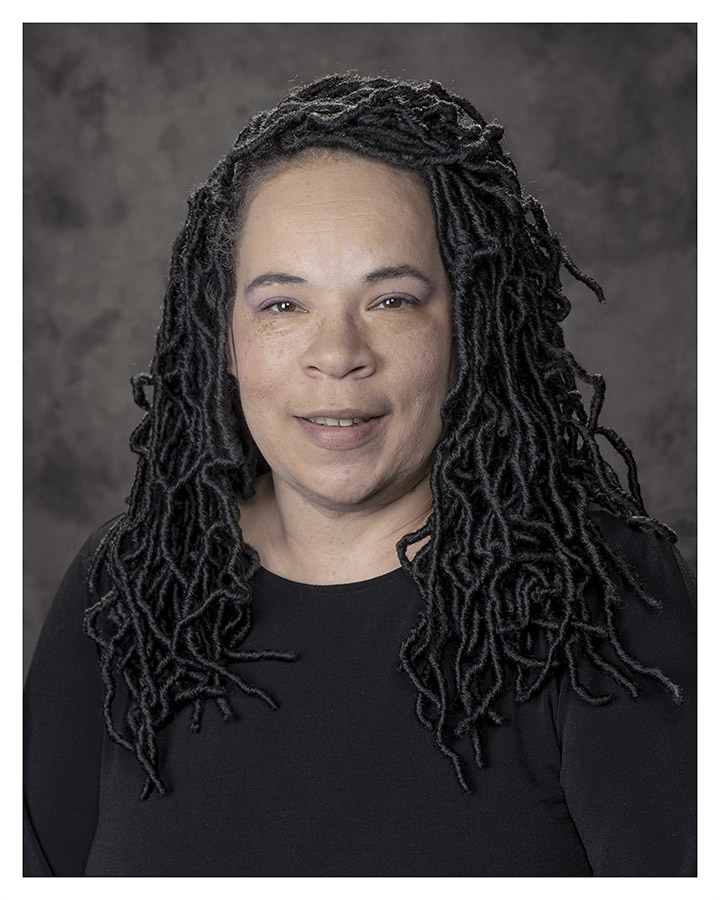 Sarah Palmero as Mrs. Deaton
Sarah Palmero as Mrs. Deaton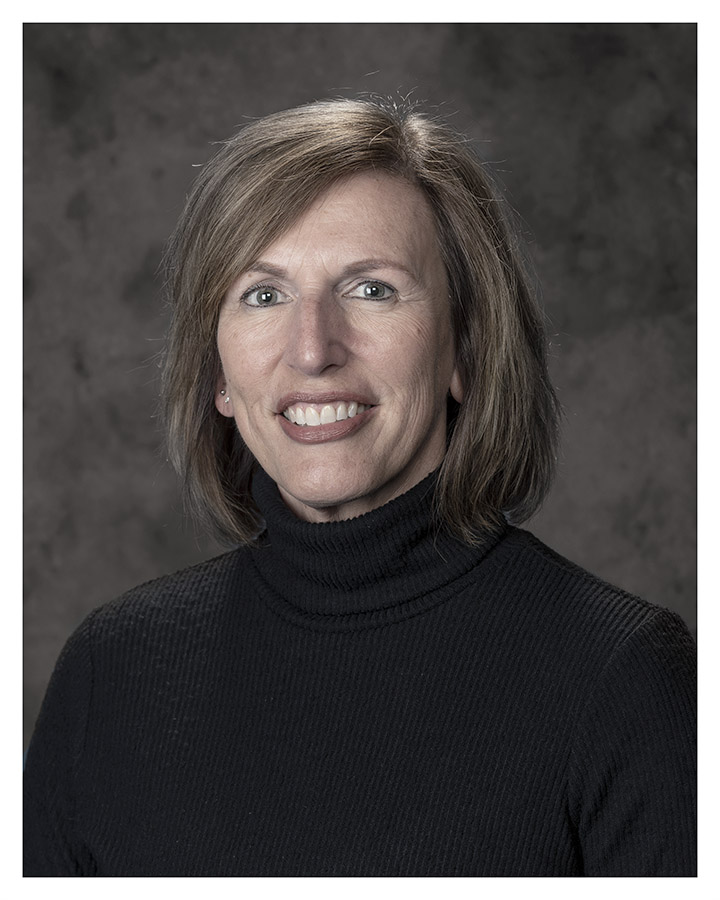 Kathleen Poe as Ziggie
Kathleen Poe as Ziggie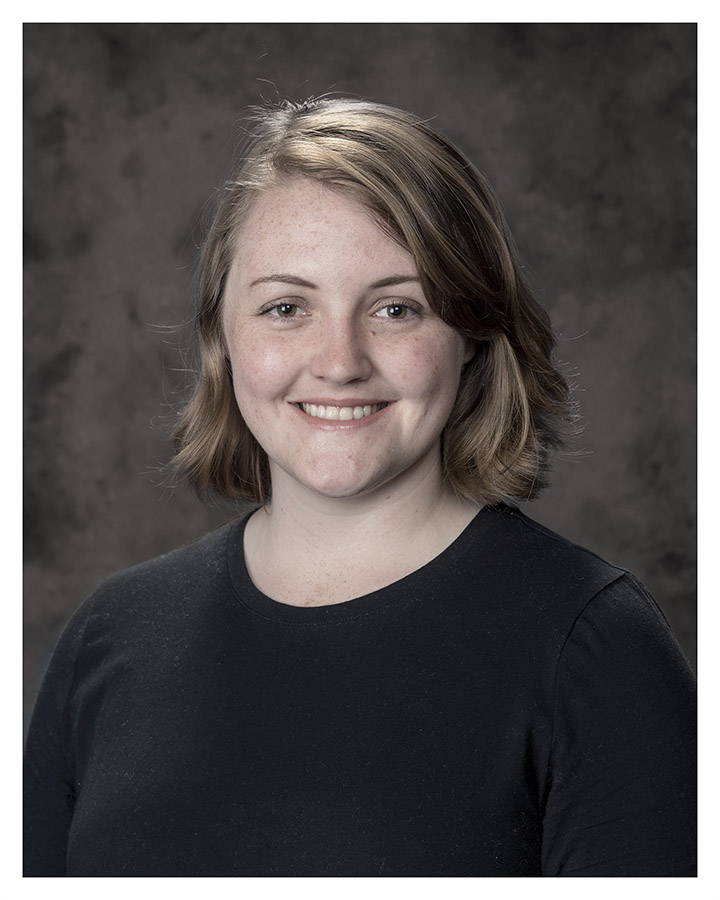 McKenna Anderson as Mildred
McKenna Anderson as MildredArtistic Staff:
- DIRECTOR - Lori Ann DeLappe-Grondin
- SCENIC DESIGNER - Shawn Weinsheink
- COSTUME DESIGNER - Nicole Sivell
- LIGHTING DESIGNER - Isaiah Leeper
- SOUND DESIGNER - Scott Bailey
- MOVEMENT COORDINATOR - Julianna Camille Hess
- DRAMATURG - Jessica Sager
- MUSIC DIRECTOR - Kathleen Poe
Production Staff:
- TECHNICAL DIRECTOR - Shawn Weinsheink
- THEATRE TECHNICIAN - Scott Bailey
- STAGE MANAGER - Kat Hansell
- ASSISTANT STAGE MANAGER - Emmy Harmon
- LIGHT BOARD OPERATOR - Angus McNay
- SOUND BOARD OPERATOR - Ariel Weder
- DECK CREW - Alejandro Barrera
- DRESSER/DECK CREW - Rosemary Montoya
- SET CONSTRUCTION & LIGHTING CREW - Shawn Weinsheink, Scott Bailey, Jacob Mejia-Hays, TA420 & TA424
- COSTUME SHOP MANAGER - Nicole Sivell
- COSTUME ASSISTANT - Isabel Melchor
Special Thanks:
Anders Hudson, Steven Grondin, Josh Anderson
Playwright:
Meredith Dayna Levy
Meredith Dayna Levy is a cisgendered lesbian playwright based in Roanoke, Va. She writes plays rooted in lived experience and emotional truth, and aims to make space through her work for dynamic, challenging women (both on stage and off).
Her full-length historical drama Decision Height garnered regional and national attention through receiving several awards through the Kennedy Center’s American College Theatre Festival, including the Harold and Mimi Steinberg National Student Playwriting Award.
Her whimsical London Underground comedy, Coupler, and lyrical one-woman show, She Made Space, have both won regional Kennedy Center honors. Her queer political epic, The Hills, was recently named a finalist for the 2020 season of the National Playwright's Conference at the Eugene O'Neill Theater Center. Meredith earned her MFA with the Hollins Playwright's Lab, and is a proud Dramatist Guild member since 2012.
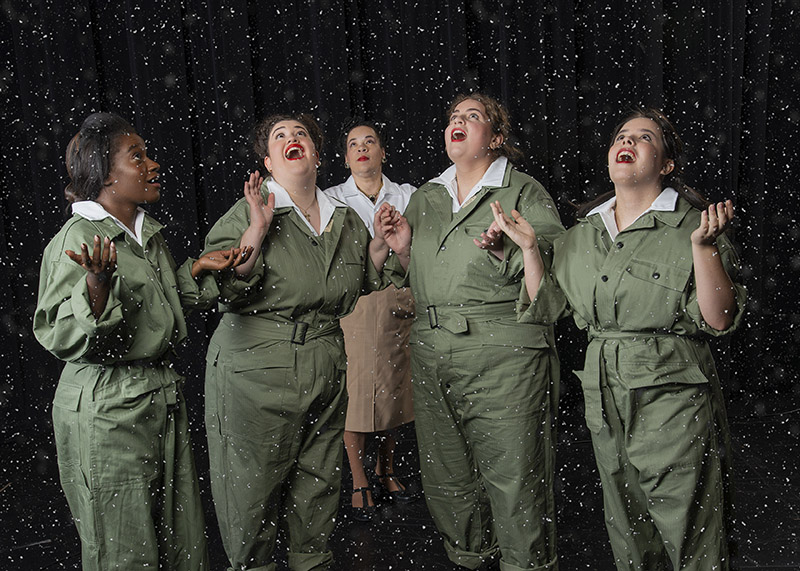
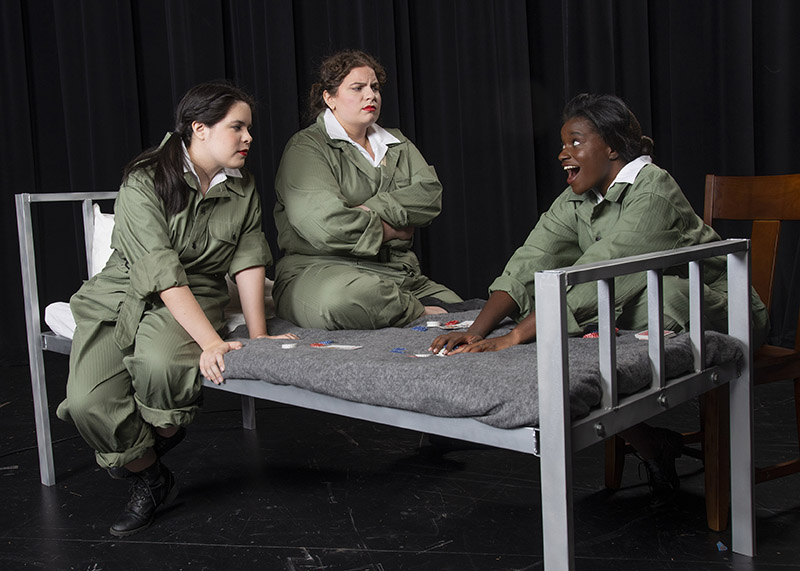
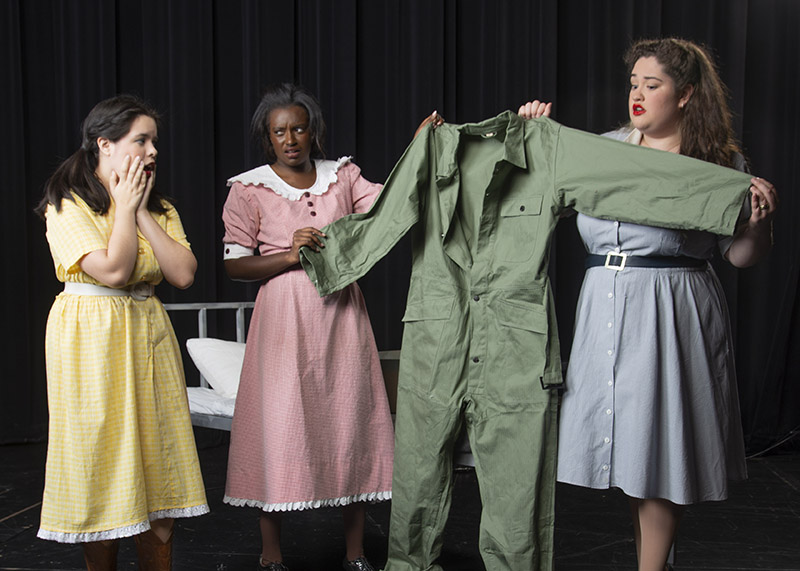
Dramaturg's Notes and Resources
By Jessica Sager
American women had a long, courageous history as pilots long before World War II. Bessica Raiche and Blanche Stuart Scott made solo flights in 1910; a year later, Harriet Quimby became the first American woman to earn a pilot’s license. In 1921, Bessie Coleman went to France and made history as the first African American and Native American woman to earn her pilot’s license. She returned to the US and worked as a barnstorming pilot, performing only for desegregated crowds. Her goal was to establish a flight school open to everyone who wanted to fly. Eleven years later, Amelia Earhart became the first woman (and second pilot, after Charles Lindbergh) to fly solo, nonstop over the Atlantic. Tragically, many of these women – including Coleman, Quimby, and Earhart – died doing what they loved.
When World War II started in Europe, American women were more than willing to help. Pilots Jacqueline Cochran and Nancy Harkness Love independently submitted proposals for women’s military aviation programs even before the bombing of Pearl Harbor and the United States’ official entry into the war. Both proposals were turned down.
The British, however, were in desperate need of pilots and accepted help from Cochran and other American women who became known as “ATA-gals” for their work in the Air Transport Auxiliary. By fall 1942, the ATA pilots’ success and a growing need for more pilots convinced the United States Air Force to go ahead with Cochran and Love’s proposed programs. Love started the Women’s Auxiliary Ferrying Squadron (WAFS) and Cochran started the 319th Women’s Flying Training Detachment (WFTD). These programs would later merge and become the Women Airforce Service Pilots (WASP) in 1943.
Cochran’s first class trained in Houston. They had to pay for and find their own housing. At the airfield, they shared packed airspace with other programs. Cochran relocated the program to Avenger Field in Sweetwater, Texas, as soon as possible. Sweetwater had more air space, central housing, and planes for advanced training.
After graduation, the women took on a variety of duties, many of which were high-risk. They ferried aircraft from base to base, copiloted overseas flights, and towed targets. They trained other pilots (including fighter pilots), flew non-combat missions, and transported supplies and personnel. WASPs also did the very dangerous (and often thankless) job of flight-testing repaired aircraft before men flew them. More than 1,000 women were WASPs, and 38 of them made the ultimate sacrifice.Commanding General “Hap” Arnold greatly respected the WASPs and argued for them to be recognized as official members of the United States Military. In 1944, a bill to militarize the WASPs was defeated by just 19 votes. The last class graduated in December 1944, and the program was deactivated before the war’s end. Since they were civilian employees, the women received no veterans’ benefits.
In 1949, the United States Air Force and Army offered some former WASPs reserve commissions based on length of service. Around 300 women accepted, and 100 became active duty during the Korean war, though in non-flying positions. In 1977, the WASPs were finally granted veteran status. The WASPs received the Congressional Gold Medal in 2010.
Sweetwater, Texas, became home to the National WASP Museum in the early 2000s. Former WASP Deanie Bishop Parrish and her daughter, Nancy Parrish, created Wings Across America, an archive of WASP documents and other historical materials. The archive proved invaluable when undergraduate Meredith Dayna Levy decided to write a play about the WASPs as her honors thesis. During her research, Levy spoke with both Nancy and Deanie Parrish. While the women of Decision Height are fictional, their experiences are based on true stories and experiences. Today, Levy holds an MFA from Hollins Playwright’s Lab; Decision Height has won awards and been produced by high schools, universities, and professional theaters across the country.
But now, we take a step back into the 1940s. The WASPs have no military or veterans’ benefits, much less plays, books, or websites dedicated to their history. There is no Gold Medal; there isn’t even help with funeral expenses for those who die in service. There is simply the need to do something more. Each pilot’s motivation for coming to Avenger Field is different, but all share the desire to rise above expectations and take an active role in their country’s future. Everything in their word is changing, and nothing in these pioneering young women’s lives will ever be the same. Welcome to Avenger Field.
To learn more about the WASP and World War II, I highly recommend the following sites: